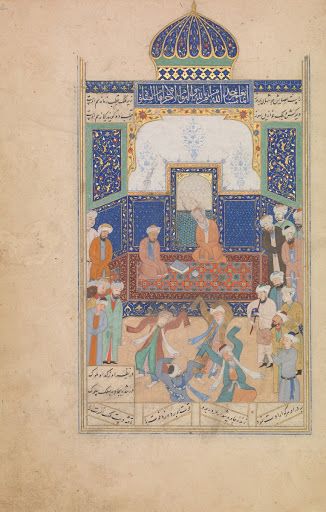For smooth Ad free experience
For smooth Ad free experience
Sufi saint of the Chishti Order and a name that is common in the hearts of the Indian Subcontinent; Nizamuddin Auliya, proclaimed love for God as a way to love humanity. This legendary Sunni Muslim scholar died on this day.

Died on 3rd April 1325
In the 11th century, a wandering Sufi mystic settled down in Ghiyaspur. His hospice was a sanctuary, not only for the ones protected by the faith but for everyone. Not only would this new settlement be known by his name centuries later as the Nizamuddin Basti, but his piety would significantly affect the social and cultural fabric of the entire subcontinent.
Such was the glory of Sheikh Nizamuddin Auliya, who is revered by the people of all faiths, from all walks of life- no matter an emperor or a simpleton, everyone bows down their head in respect.
The growing materialism in the central Islamic lands during the 10th century gave rise to the Sufis, religious mystics who believed that God (Allah) could be found through love. Unlike the orthodox schools of Islam, they held the view that a pious and direct link exists between the god and the man.
The search for reality begins from within, away from the shallowness of the world. With this thought, Sheikh Moinuddin Chisti brought the teachings of the Chisti Silsila or the Chistiya to India.
One of the most revered saints of this order was Nizamuddin Auliya.
Born in Badaun in Uttar Pradesh, his family shifted to Delhi when he was very young. Growing distant from the world outside, he soon went to Ajodhan ( modern-day Pakistan) and became the murid or disciple of Sufi saint Baba Farid. This highly revered Sufi appointed Nizamuddin Auliya as his disciple. Wandering here and there, he finally established his hospice or Khanqah in Delhi.
His glory grew manifold. People flocked to his khanqah to seek blessings and redressal of hardships. His teachings were very simple.
Nizamuddin Auliya always talked about connecting to people directly and his teachings were very simple. The most esteemed of the imperial court came to visit him with a will to shower him with many gifts, but he lived a life of simplicity and poverty, free from any material desires.
He refrained from accepting any gifts and keeping up demands from the state or the general public.
Staying true to his Sufi heritage, Nizamuddin Auliya constantly emphasised how love for God is truly reflected in the service for humanity. The saint believed that in the course of religion, cosmic emotions are more important than academic pursuits.
He taught the concepts of Faqr, religious poverty and Futuh, distance from the state and any political ambition. Many famous Sufis like Naseeruddin Chiragh Dilli, Amir Khusro, and Faqruddin Faqr Dehlvi were his disciples.
Once, Sultan Mubarak Shah grew cross with him and despite his multiple attempts, the saint did not give into his authority. Another famous episode from his life when he made lamps burn with water to help labourers in constructing a step-well during the night and he came to be known as Chiragh-e-Dilli. Owing to the compassion he had for all, Nizamuddin Auliya tomb is visited by thousands even today.
0
You might be interested in reading more from
